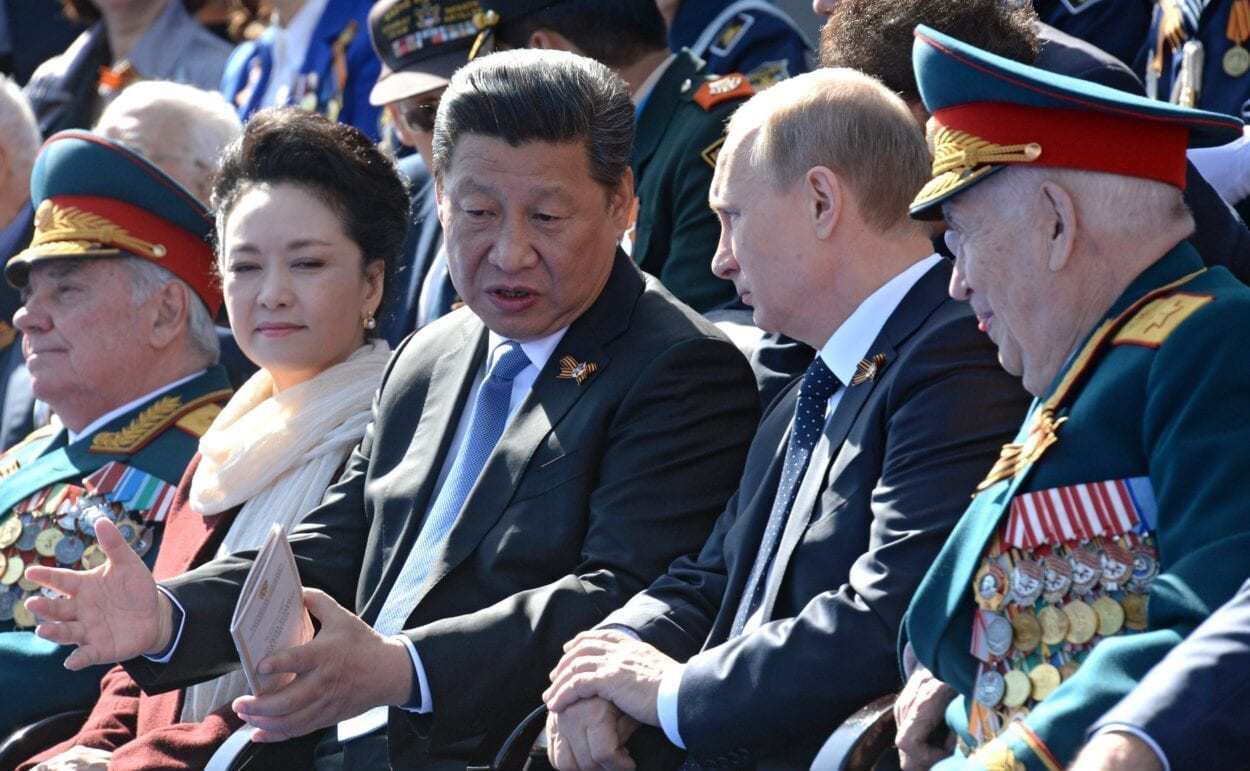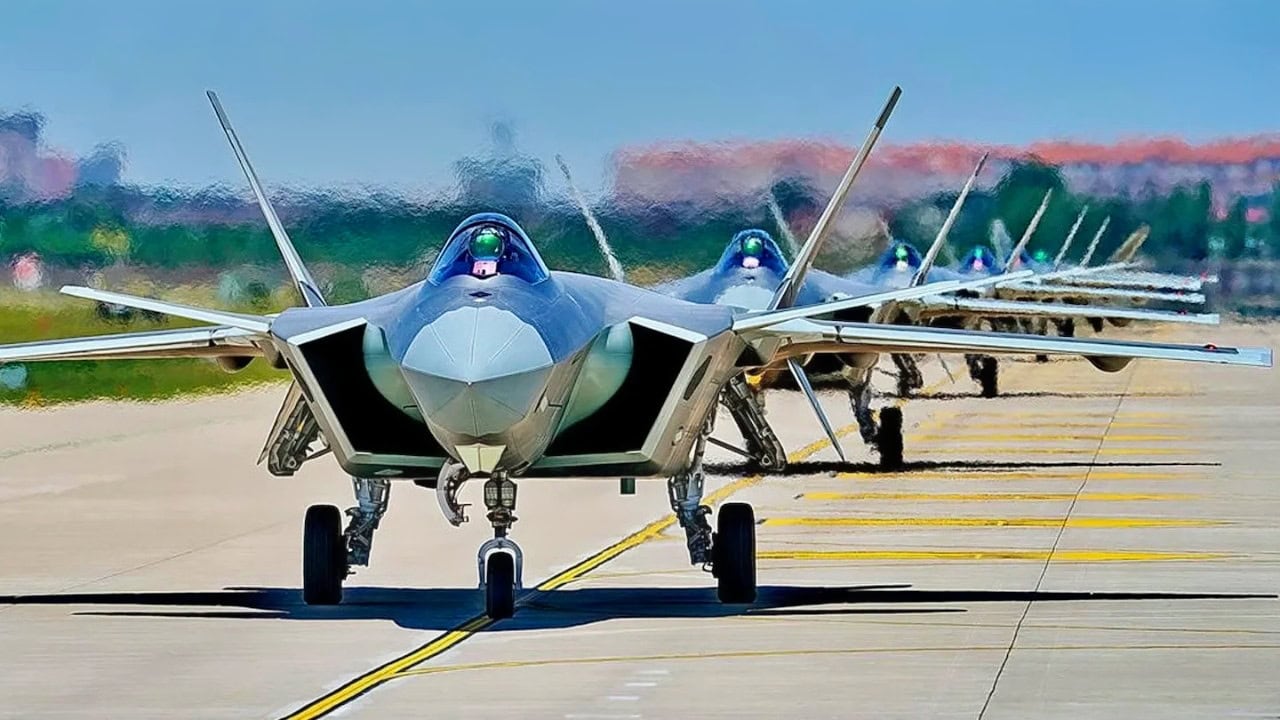A fracturing of the United States-NATO alliance and a Russia-favorable resolution of the war in Ukraine would represent a significant strategic victory for Xi Jinping, the apotheosis of an alliance sealed by Xi and Russian President Vladimir Putin at the Beijing Olympics in 2022.
But their 2024 pledge of a “new era” between the two powers is about more than the support that is helping Russia sustain its war in Ukraine; fundamentally, it is about diminishing the American dominance that prevailed after World War II and ushering in a new global writ, authored and underpinned by Chinese power. “The world is going through changes unseen in a hundred years,” Xi told Putin at the BRICS summit. And, he might have added, we are delighted.
Thinking Beyond the Ukraine War: The Impact on Asia and Beyond
Putin’s 2022 march on Ukraine was a signal Xi was quick to exploit: a “once in a century” opportunity, he believed, to hasten the inevitable decline of the West and build a new world order helmed by Beijing. Xi embraced the Russian dictator’s upending of the post-World War II order, helping to sustain Moscow’s onslaught with critical dual-use inputs, such as microelectronics, precision machine tools, spare parts, titanium and magnesium alloys, and chemical inputs for munitions production and components essential for weapons manufacturing. China has also buttressed Russia’s economy in the face of international sanctions, purchasing energy and increasing trade to record levels.
Meanwhile, Beijing’s formidable informational and propaganda arms promote Russian narratives that blame the United States and NATO for the war. For these reasons, NATO has identified China as a “decisive enabler” of Russia’s war efforts, without whose support the war could not continue.
Though on its face, the Xi-Putin alliance appears transactional and opportunistic, there are deeper shared goals that should sound alarm bells in Europe and the United States. A swift end to American support for Ukraine, hastening the war’s end on terms favorable to Russia, will be the payoff for Xi’s big bet on Putin. Just as Ukraine’s Western supporters have argued forcefully that a victory for Kyiv will be a warning shot across Beijing’s bow – a sign that there are profound risks in attacking, for example, Taiwan – the converse is also true.
In supporting Russian aggression, China will have helped validate arguments that NATO is a force in decline and that the era dominated by the US alliance system is in eclipse. The door, Xi will crow, has opened to a reshaping of borders and alliances through territorial conquest.
The Taiwan Nightmare
If China’s tactical investment in Russia becomes a strategic victory for America’s most powerful adversaries, a new geostrategic chapter will open. Chinese propaganda arms will work overtime to persuade Taiwan, the Philippines, and other key Asian territories in Beijing’s gunsights that the United States is an unreliable partner.
Others who enjoy a US security commitment – an actual treaty in the case of Japan – will face an onslaught of pressure to weaken their tie with the US.
China will quickly test the strength of the American commitment, escalating provocations like Chinese warships off Australia’s coast or in Taiwan’s air defense identification zone and surrounding waters. Xi will ask America’s friends whether they wish to become the next Ukraine—bloodied and ultimately abandoned.
Nor will the repercussions for the United States and US interests end there. European leaders who were slowly hardening their position on China’s menace will be focused on managing a triumphant Putin and deterring further Russian aggression in the Baltics. Their focus on Beijing will falter, and Xi will encourage separate arrangements, offering enticements to Germany to hedge its transatlantic bets.
The odds of a two or even three-front war will increase most alarmingly. Should Beijing decide to escalate its comprehensive coercion campaign in Asia and start a full-scale war, China will undoubtedly call in the debt Russia owes it by urging Moscow to make moves on Baltic states already in Putin’s sights.
To darken matters even further, North Korea, to whom Russia is also indebted, will almost certainly prod Moscow to destabilize Eastern Europe should Pyongyang decide to open another war front on the Korean peninsula.
How Trump Can Stop A ‘Doomsday’ Scenario for Asia
These doomsday scenarios can still be forestalled if the Trump administration persuades the Kremlin that its interests are in a peaceful outcome to Putin’s war on Ukraine. Before the Oval Office blowout, Trump had made security and economic assurances to Kyiv. Suppose Trump indeed manages to scare Europe into spending adequately on its defense while properly arming Ukraine such that peace can be enforced and war in Eastern Europe can be deterred.
In that case, he will substantially improve America’s security position in Eurasia. If US assistance to Ukraine resumes – paid for however Ukrainian President Volodymyr Zelensky and Trump arrange – the United States will restore the deterrence leeching away in recent years.

Russia and China are getting closer. Putin and Xi meeting.
If financial concerns are central to the Trump calculus, there are $300 billion in frozen Russian sovereign assets in Europe. Confiscating those funds would send a clear signal to Beijing, not about future opportunities but about the profound risk of trying to upend the current global order.
No matter what, there is a zero-sum game afoot: Should Moscow prevail, the reins will be off Beijing, and the challenges to the United States will escalate dramatically. Conversely, if Trump can secure just peace, there will be recalculations in Beijing. It seems obvious which is the better choice for the United States.
About the Author: Dan Blumenthal
Dan Blumenthal is a senior fellow at the American Enterprise Institute, focusing on East Asian security issues and Sino-American relations. Mr. Blumenthal has served in and advised the US government on China issues for more than a decade. Before joining AEI, Mr. Blumenthal served as senior director for China, Taiwan, and Mongolia at the US Department of Defense. He served as a commissioner on the congressionally mandated US-China Economic and Security Review Commission from 2006 to 2012, and he was vice chairman of the commission in 2007. He also served on the Academic Advisory Board of the congressional US-China Working Group.

